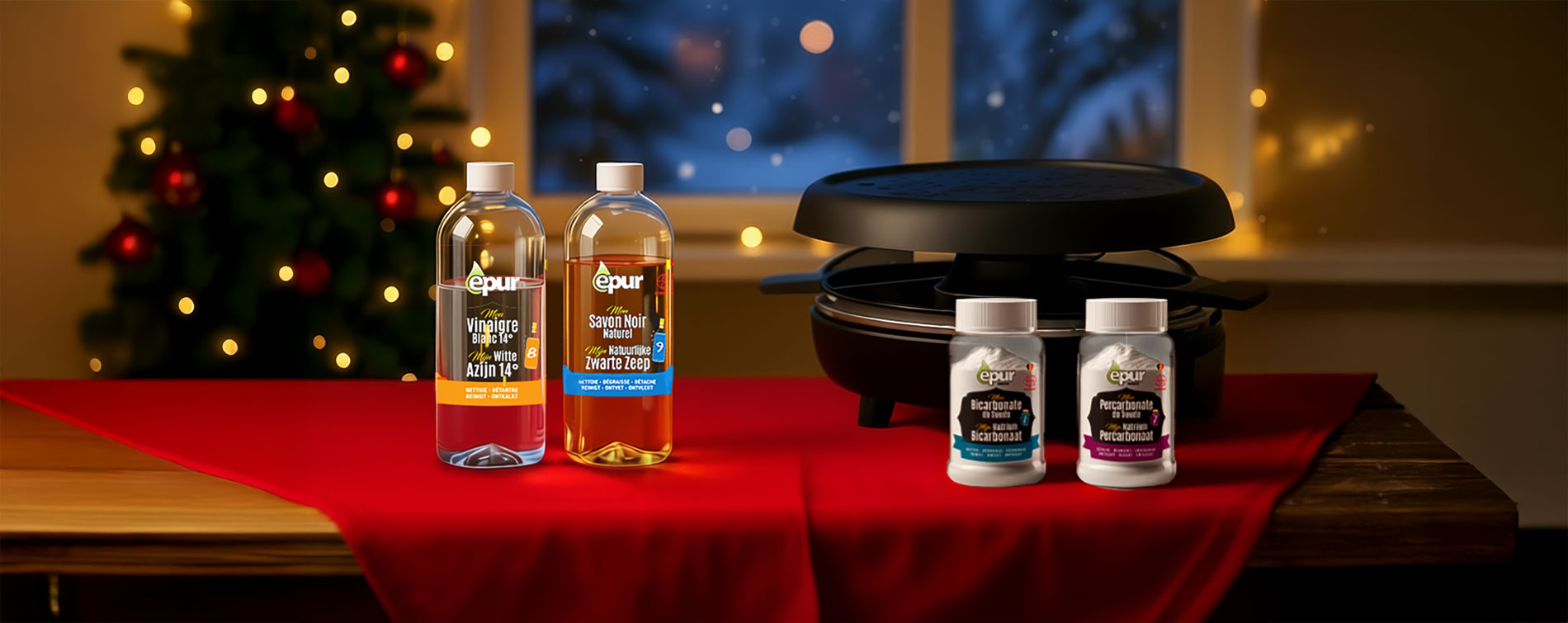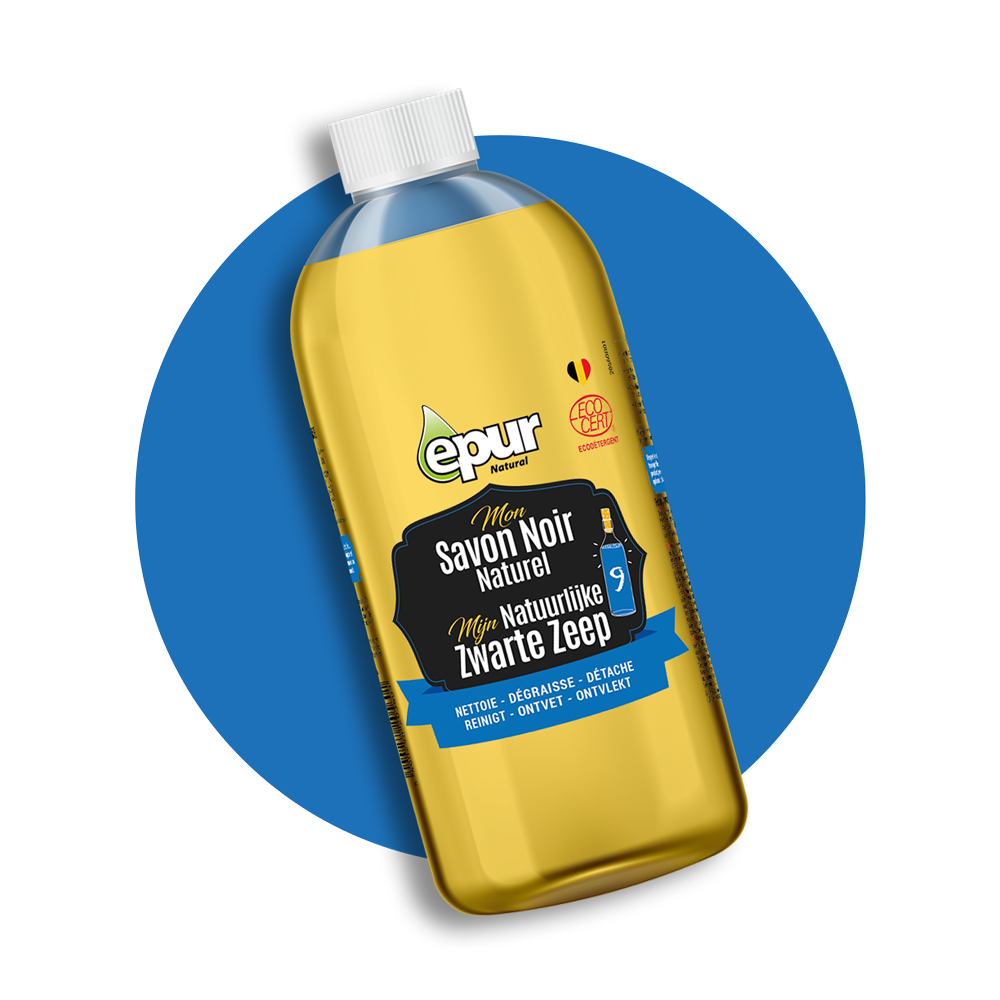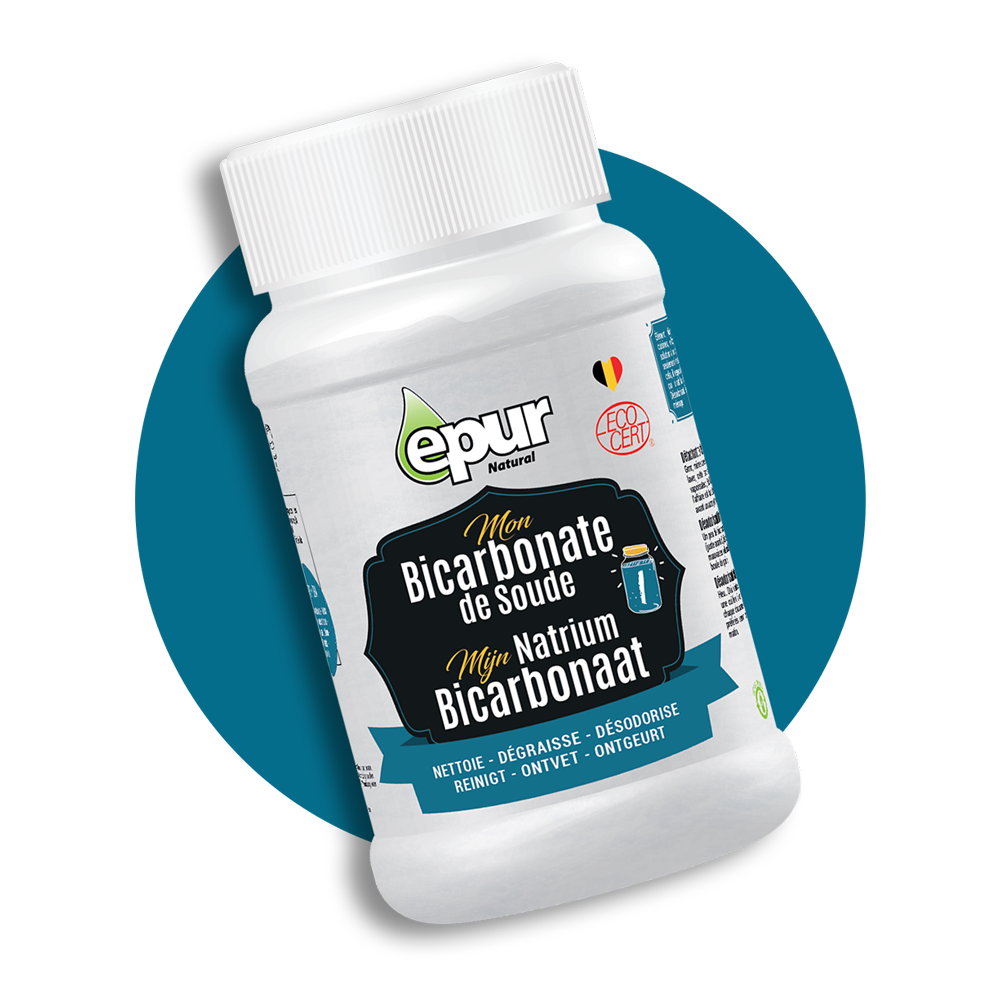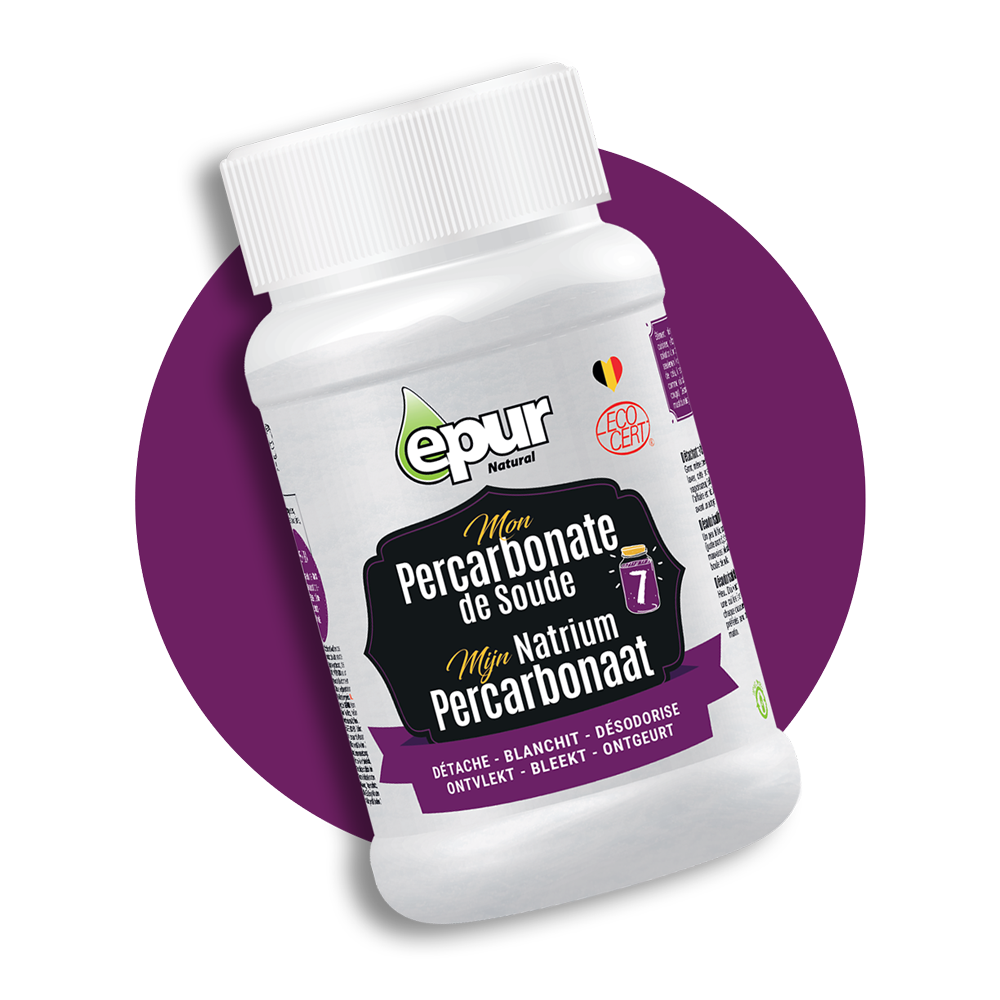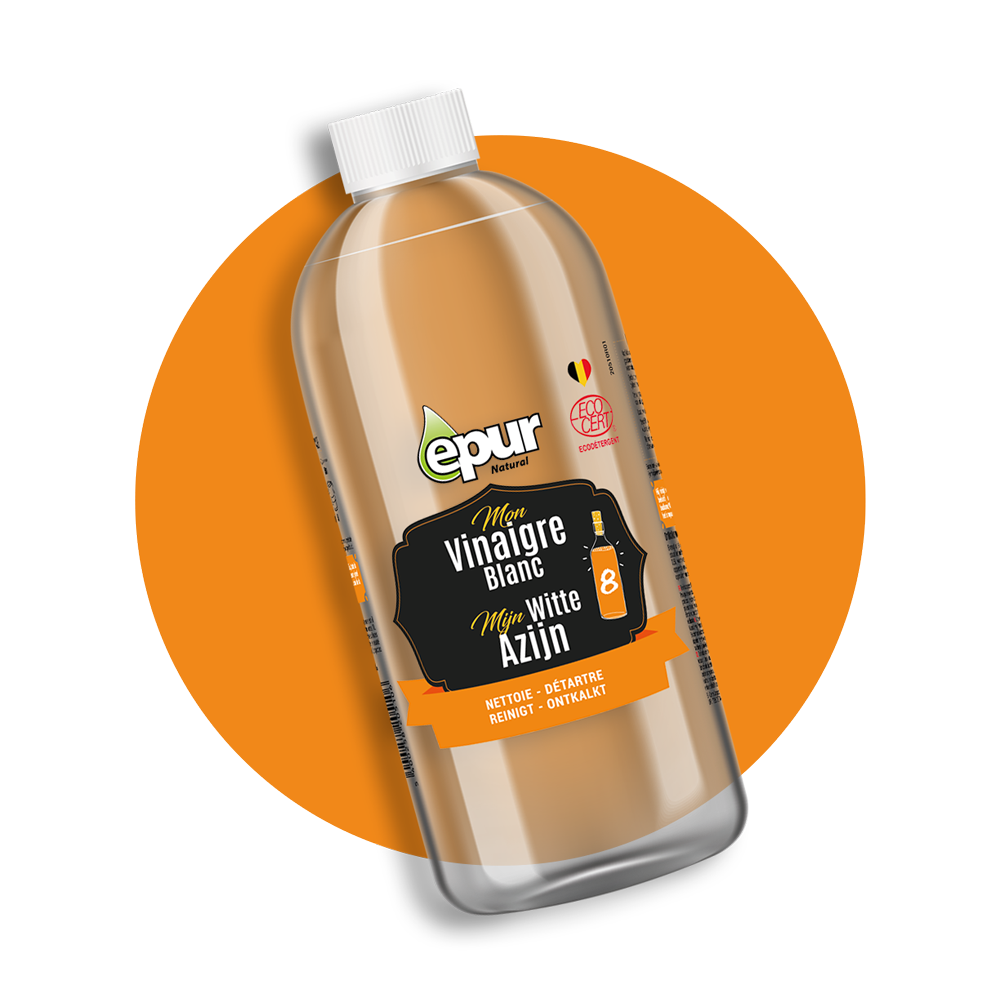Clean & natural
❄️ Winter is just around the corner, and with it comes the return of the undisputed star of convivial evenings: raclette!
Between melting cheese, charcuterie and laughter, everything is perfect… until it’s time to clean up. Because let’s be honest: raclette pans and saucepans stick, grease and smell.
The good news? No need to scrape like a madman: with just 2 or 3 natural ingredients from EPUR’s “DIY Ingredients” range, you’ll be left with effortlessly clean dishes.
What you need
Preparation:
Method A (non-stick & aluminum)
gentle and safe
Preferably for small non-stick pans and aluminum saucepans.
- Express soak
Fill the sink with hot water (45-50°C).
Add 1 tablespoon of black soap per liter. Soak for 15 min. - Minute paste
Mix 1 tablespoon of bicarbonate with a little water to make a thick “yoghurt-like” paste.
Spread over stuck areas, leave on for 5 minutes, then gently rub with a sponge. - Rinse
Rinse with clean water.
If necessary, a second application of black soap is sufficient.
Method B (stainless steel/enamelled steel)
for the big guy
Perfect for stainless steel or enamelled pans (avoid aluminium and non-stick).
- Oxygen bath
Pour 1 L of hot water (50°C) + 1 tablespoon of percarbonate into the saucepan.
Leave for 30 min (with lid on). Residues will almost detach themselves. - Bicarbonate finish
Drain, sprinkle with bicarbonate, rub gently and rinse.
Fast odor eliminator
- After washing, spray with one inch of white vinegar (separate spray).
- Rinse and wipe dry: this neutralizes the smell of cheese and prevents limescale build-up.
- Never mix vinegar with soapy or oxygenated water: use it only afterwards, in a separate rinse.
Bonus tip
- Tough burns: cover with hot water + 1 tsp bicarbonate, bring to a gentle simmer for 3-4 min, cut, leave to stand, drain then wash as usual.
- Non-stick pans: no abrasive (or very light) to preserve the coating; bicarbonate paste is sufficient.
- Less odors: rinse with very hot water immediately after serving, even if you wash later.
Safety & surfaces
- Gloves recommended, ventilate when using percarbonate.
- Avoid percarbonate/crystals on aluminum and non-stick surfaces.
- Keep powders out of reach of children/pets.

